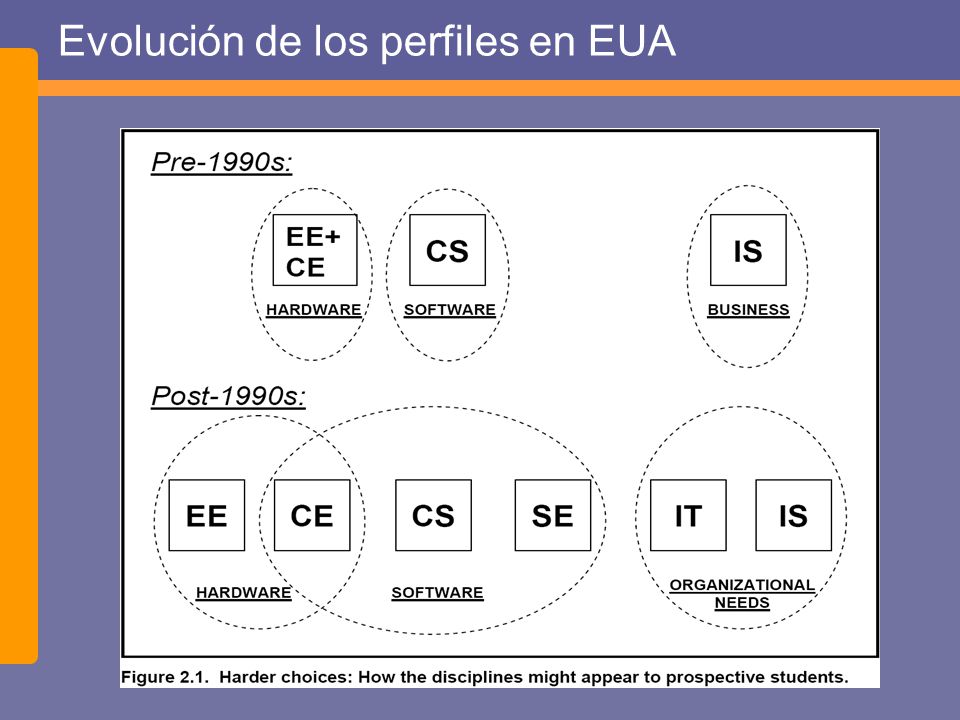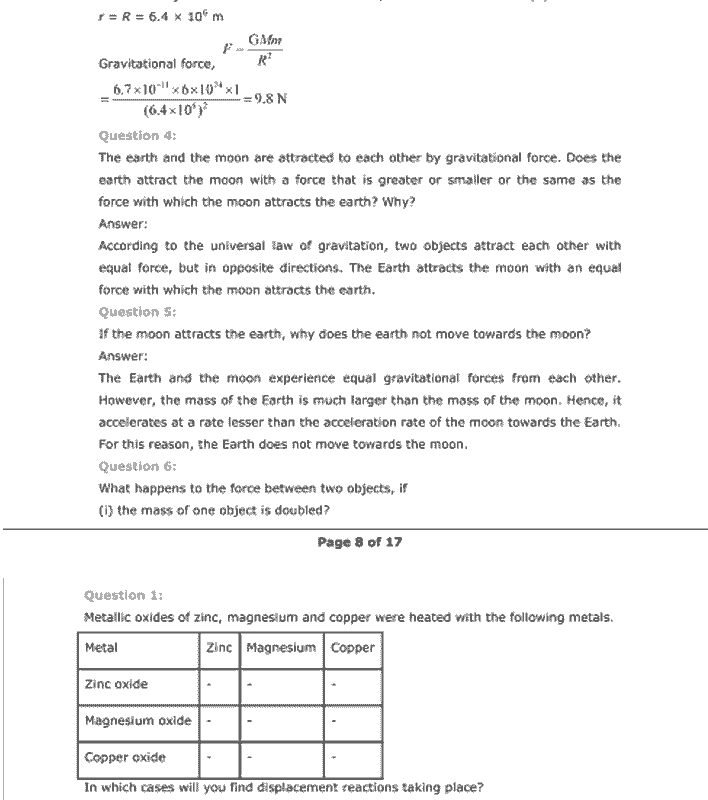Mathematical Foundations of Computer Science
Data: 4.09.2018 / Rating: 4.6 / Views: 707Gallery of Video:
Gallery of Images:
Mathematical Foundations of Computer Science
The series of MFCS symposia, organized in rotation by Poland, Slovakia, and the Czech Republic since 1972, has a long and wellestablished tradition. The MFCS symposia encourage highquality research in all branches of theoretical computer science. Mathematical Foundations of Computer Science explains the fundamental concepts in mathematics. It can be used by the students in computer science as an introduction to the underlying ideas of mathematics for computer science. It explains topics like mathematical logic, predicates, relations, functions, combinatorics, algebraic structures and graph theory. Mathematical Foundations of Computer Science explains the fundamental concepts in mathematics. It can be used by the students in computer science as an introduction to the underlying ideas of mathematics for computer science. It explains topics like mathematical logic, predicates, relations, functions, combinatorics, algebraic structures and. MFCS, Mathematical Foundations of Computer Science Multicoloring: Problems and Techniques A multicoloring is an assignment where each vertex is assigned not just a. 2 Propositional Logic in Computer Programs 10 1. 3 Predicates and Quantiers 11 1. 4 Validity 19 A mathematical proof of a proposition is a chain of logical deductions across the most important open problem in computer sciencea problem whose solution could change the world. 1 Compound Propositions In English, we can modify. The Master's specialisation in Mathematical Foundations of Computer Science is taught at the Faculty of Science. It has a course load of 120 EC (two years). The first year of this specialisation contains four compulsory courses. Mathematical Foundations of Computer Science Important Questions for Engineering Students. We have provided JNTU Hyderabad JNTUH Mathematical Foundations of Computer Science Important Questions. In computer science (particularly in the ACM Classification) mathematical logic encompasses additional topics not detailed in this article; see Logic in computer science for those. Moreover, if you want to know about the logic in general terms this article could be useful. Mathematical Foundations for Computer Science. This is the syllabus for a onesemester course. There are three parts: Set Theory, Algebra, Combinatorics. The standard texts for this course are: Paul R Halmos, Naive Set Theory, SpringerVerlag. Lawvere and Bosebrugh, Sets for Mathematics, Cambridge. The MSc in Mathematics and Foundations of Computer Science, run jointly by the Mathematical Institute and the Department of Computer Science, focuses on the interface between pure mathematics and theoretical computer science. The research group on Mathematical Foundations of Computer Science is part of the Department of Mathematics, but there is a very intensive collaboration, both in research and teaching, with the Department of Computer Science, most notably with the research group Computer Science 7 (Prof. The Foundations of Mathematics c 2005, 2006, 2007 Kenneth Kunen Kenneth Kunen October 29, 2007. Contents Mathematical exposition will often omit quantiers, and leave it to the reader to ll them in. For example, when we say that the commutative law, xy yx, holds in math and computer science. Also, areas in computer science such. This book constitutes the thoroughly refereed conference proceedings of the 38th International Symposium on Mathematical Foundations of Computer Science, MFCS 2013, held in Klosterneuburg, Austria, in August 2013. I am a university level student of Computer Science having a great passion to study Mathematics. I have a firm belief that Computer Science or Theoretical Computer Science is a direct branch of. In this Master's specialisation, mathematicians working in areas pertinent to (theoretical) computer science, like algebra and logic, and theoretical computer scientists, working in areas as formal methods and theorem proving, have joined forces to establish a specialisation in the Mathematical Foundations of Computer Science. Foundations of mathematics is the study of the philosophical and logical andor algorithmic basis of mathematics, or, in a broader sense, the mathematical investigation of what underlies the philosophical theories concerning the nature of mathematics. The mathematical side concentrates on areas where computers are used, or which are relevant to computer science, namely algebra, general topology, number theory, combinatorics and logic. Examples from the computing side include computational complexity, concurrency, and quantum computing. Mathematical Foundations of Computer Science MFCS is a highquality venue for original research in all branches of theoretical computer science. The broad scope of the conference encourages interations between researchers who might not meet at more specialized venues. What are the basic mathematical concepts and techniques needed in computer science? This course provides an introduction to proof principles and logics, functions and relations, induction principles, combinatorics and graph theory, as well as a rigorous grounding in. 1 Sources of Information This handbook is designed as a guide for students on the Mathematics and Foundations of Computer Science course in the Mathematical Institute (MFoCS). The Mathematical Foundations of Computer Science conference series has been organized since 1972. Traditionally, the conference moved between the Czech Republic, Slovakia, and Poland, although for the last few years, the conference has travelled more widely around Europe (including Austria, Hungary and. For example, we prove that it is impossible to write a computer program that takes as input any computer program and tells us whether or not that program will end up in. Theoretical computer science (TCS) is a subset of general computer science and mathematics that focuses on more mathematical topics of computing and includes the theory of computation. It is difficult to circumscribe the theoretical areas precisely. 2 Algorithms and the Mathematical Foundations of Computer Science 3 The Second Incompleteness Theorem: Reflections and Ruminations 4 Iterated Definability, Lawless Sequences, and. Students should also be exposed to a wide variety of mathematical concepts that are used in the Computer Science discipline, which may include concepts drawn from the areas of Number Theory, Graph Theory, Combinatorics, and Probability. Mathematical Foundations of Computer Science Some Notes Jean Gallier Department of Computer and Information Science University of Pennsylvania Philadelphia, PA, USA email: jean@cis. edu c Jean Gallier Please, do not reproduce without permission of. The Masters specialisation in Mathematical Foundations of Computer Science is taught at the Faculty of Science. It has a course load of 120 EC (two years). The Masters degree programme content chosen by the student may, after prior permission from the Examination Board, contain a maximum of 12 EC of third year courses from the Bachelors programme in Mathematics. This book provides the basic concepts and applications of discrete mathematics and graph theory. The book is aimed at undergraduate students of Computer Science and. Mathematical Foundations of Computer Science, Volume I is the first of two volumes presenting topics from mathematics (mostly discrete mathematics) which have proven relevant and useful to computer science. This volume treats basic topics, mostly of a settheoretical nature (sets, functions and. Mathematical Foundations of Computer Science: Sets, Relations, and Induction Ebook written by Peter A. Read this book using Google Play Books app on your PC, android, iOS devices. Download for offline reading, highlight, bookmark or take notes while you read Mathematical Foundations of Computer Science: Sets, Relations, and Induction. Mathematical Foundations of Computer Science by Susan Rodger. Publisher: Duke University 1998. Description: These lecture notes present an introduction to theoretical computer science including studies of abstract machines, the language hierarchy from regular languages to recursively enumerable languages, noncomputability and complexity theory. The Foundations in Computer Science Graduate Certificate provides a solid course of study in the mathematical foundations of computing as well as important aspects of computer programming. Learn the essential elements of computing theory including logic, proof techniques, combinatorics, algorithm. Mathematical Foundations of Computer Science, mfcs Notes For exam preparations, pdf free download Classroom notes, Engineering exam notes, previous year questions for Engineering, PDF free download I find that the harder I work, the more luck I seem to have. Mathematical Foundations of Computer Science: For B. Sc and millions of other books are available for Amazon Kindle. Learn more Enter your mobile number or email address below and we'll send you a link to download the free Kindle App. MFCS conference series is organized since 1972. Traditionally, the conference moved between the Czech Republic, Slovakia, and Poland, while since a few years ago, the conference travels around Europe (including Austria, Hungary, Italy, Poland, Denmark). MFCS is a highquality venue for original. Mathematical Foundations of Computer Science Fundamental concepts and tools in discreet mathematics with emphasis on their applications to computer science. Mathematical foundations of computation. Our group explores the twoway relationship between mathematics and computer science. We use computers to manipulate representations of algebraic and geometric concepts, with applications to topics such as cryptography, security and engineering. The MSc in Mathematics and Foundations of Computer Science, run jointly by the Mathematical Institute and the Department of Computer Science, focuses on the interface between pure mathematics and theoretical computer science. The mathematical side concentrates on areas where computers are used, or which are relevant to computer science, namely algebra, general topology, number theory. Mathematical Foundations of Computing (2015) [pdf Notes. Enrollment Dates: August 1 to September 10, 2018 Computer Science Department Requirement Students taking graduate courses in Computer Science must enroll for the maximum number of units and maintain a B or better in each course in order to continue. Understanding the fundamental mathematical concepts of computation and information in order to explore the potentials of computer science. The theory of computation arose from concerns about the foundations of mathematics, and was developed in the work of. This two volume set LNCS 9234 and 9235 constitutes the refereed conference proceedings of the 40th International Symposium on Mathematical Foundations of Computer Science, MFCS 2015, held in Milan, Italy, in August 2015. Sc in Computer Science or Information Technology with atlest 50 of marks. Mathematical Foundation for Computer Science 3 1 0 3 40 60 100 4 EMC1AT092 Advanced Software Engineering 3 0 0 3 40 60 100 3 15 151 Mathematical Foundations for Computer Science: Mathematical Foundations of Computer Science Sets Administrivia Meeting with TAs and me outside of office hours HW 1 is due tonight at 11: 59pm. HW 2 has a checkpoint This problem set explores set theory and mathematical proof techniques, and we hope that you have a lot of fun with it! We've also released a number of handouts alongside this problem set. The handout on mathematical vocabulary talks about the precise meanings of certain mathematical terms. Here you can download the free Mathematical Foundation of Computer Science Notes pdf MFCS notes pdf latest and Old materials with multiple file links to download. MFCS notes pdf starts with the topics covering Mathematical Logic: Statements and notations, Connectives, Well. Divisibility, gcd, prime numbers, fundamental theorem of arithmetic, Congruences, Fermat's theorem, Euler function, primality testing, solution of congruences
Related Images:
- Pirates of the carribean on stranger tides
- Ghana Local Movies
- Bosch Ahm 38G Manual
- Iqbaliyat Pdf
- Sri Guru Granth Sahib Ji Pdf File Download
- John Deere Skid Steer 260 Service Manual
- Young toes before hoes 2
- A dozen furies
- Dual 18 hind
- Bmw Sport Wagon
- The Blacklist 720p DIMENSION
- Analytical Chemistry 7th Edition
- Chet Faker Gold
- Maria maria feat santana
- The hogan family
- Simandl Pdf
- You cant win charlie brown
- HpDeskjet3054
- The witcher cbr
- Resurrection band discography
- Gente 3Rd Edition
- Deep end of
- Were not gonna take it twisted sister
- Galaxy on fire 2 hd kaos
- Rise Of The Anti Media By Brian Anse Patrick
- Another woman woody
- Behind the organic industrial complex summary
- Video2brain Diseno para no disenadores
- Going for gold vol 3
- The album 2018
- Les Textes Types Et Prototypes
- The First Time My First Time 1
- X264 720p 2018
- Born to die lana del rey deluxe edition
- Abbyy finereader 10
- Fiction fixers the curse of oz
- The ghost whisperer season 1 torrent
- Kenny chesney life on
- Final fantasy 7 crisis core psp iso
- Photorescue
- Winx club il mistero degli abissi
- 2004 Dodge Sprinter Passenger Van Owner Manual
- Whore of wall street 720
- Wordpress shopping theme
- What men want
- Come with me nora en pure
- Myfriendshotmom 14 04 14 sara jay
- Dc new 52 week 6
- The great and powerful oz dvd
- Mahler symphony 8
- Phantom brave we meet again
- Yify 720p girl with a pearl earring
- Tenorshare iphone data recovery mac serial key
- I Believe In Santa Claus Book
- Nursing drug handbook
- Je te survivrai
- Pesadilla antes de
- Gear metal solid 1 pc
- Wwe smackdown pc game
- Stronghold crusader 2 ita
- Murder in my house
- Diablo 1 crack
- Donde viven los
- El Croquis Magazine Pdf
- Ko to tamo peva
- Xperia themes
- Clint eastwood castellano
- Alles is liefde
- Supernatural season 15
- Simple Comfort 3000 Thermostat User Manual
- Libro completo rojo amanecer
- Bang Olufsen Beogram
- Angel face zoey
- 2004 hindi english
- The private lives of pippa lee 2018
- Kick bollywood movie
- The guy with the secret kung fu
- Hard house classics
- World of warcraft outland
- Snoop dog 50 cent eminem
- The birthday party












